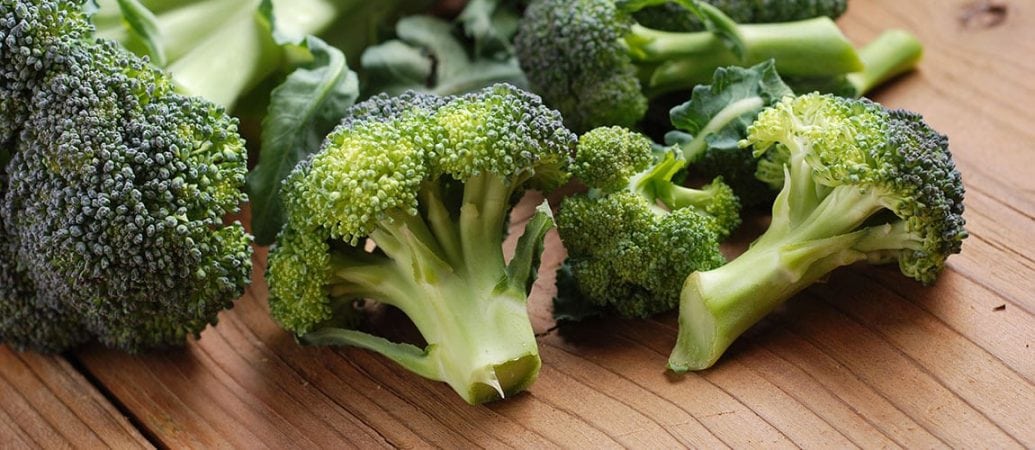Under Age 50? Here's Why It's Important to Protect Cellular Health
Scientists are zeroing in on ways that you can protect cellular health, potentially mitigating the risk of developing unhealthy cell growth. This news is important as emerging research is painting a dire picture about cancer rates in adults aged 50 and younger.
Here is what you need to know about what the latest study revealed, which lifestyle factors are to blame for this increase and what you can do to lower your risks by protecting against oxidative damage to cells and excess inflammation.
Cancer on the Risk in Individuals Under Age 50
 A new study published in Nature Reviews: Clinical Oncology is sounding the alarm bells. According to the latest research, the risk of cancer in young adults is increasing at breakneck speed. The data details how the rate of early-onset cancer has been rising steadily since the 1990s.
A new study published in Nature Reviews: Clinical Oncology is sounding the alarm bells. According to the latest research, the risk of cancer in young adults is increasing at breakneck speed. The data details how the rate of early-onset cancer has been rising steadily since the 1990s.
There is no shortage of the types of cancers identified in this study. Some of the most common types of cancer that the researchers identified as seeing a rapid acceleration in this population includes breast, kidney, pancreatic, liver, colorectal, esophageal, multiple myeloma, endometrial, prostate, thyroid and stomach.
Unfortunately, the increase in cancer in this population segment is indicative of deteriorating health in a number of areas. Cancer is not the only indicator that the younger generations face a variety of health challenges that need to be proactively addressed rather than dismissed.
Lifestyle Factors That Boost Cancer Risk
The researchers warn that the increase in cancers in those under the age of 50 is only expected to keep rising with each generation. The reason for this pessimism lies in the various lifestyle and environmental factors that have been shown to increase one's individual risk of unhealthy cell growth.
The blame for the rising cancer rates is spread across a variety of factors. Here are a few of some of the most influential factors identified by scientists:
- a diet high in processed meat, sugar, saturated fats and ultra-processed foods
- bad habits such as smoking and excessive alcohol use
- reproductive changes such as higher use of birth control and delayed maternal age
- physical inactivity and sedentary lifestyle
- increased exposure to pollutants
- poor sleeping habits, particularly in night shift workers
So how exactly do these lifestyle factors influence your cancer risk? In addition to the direct risks, such as poor diet leading to a greater chance of obesity, these factors can also increase cancer odds indirectly. For instance, physical inactivity can increase the amount of harmful inflammation in the body. Other factors may trigger cellular damage, making it more likely that unhealthy cell growth can begin to take root in the body.
In addition, some of these factors increase the threat of developing other chronic diseases that make you more likely to also face cancer. For example, a poor diet and obesity will increase your risk of developing Type 2 diabetes, thus also raising the threat of cancer.
How You Can Protect Your Cellular Health
The good news is that you are not powerless in taking care of your cellular health. Here are some of the steps that you should be taking today in an effort to reduce your risks and promote healthy cell growth.
Get in Your Exercise
There is no substitute for regular exercise. Not only does the actual act of raising your heart rate and working up a sweat ward off diseases such as cancer but being active also helps you to keep your weight at a healthy level.
Nourish Your Body
What you put into your body has a direct impact on your overall health. To promote healthy cell growth, be sure to nourish your body with an abundance of fruits and vegetables while avoiding overly processed foods, excess sugar and saturated fats.
Supplement Wisely
In addition to choosing the right foods, you can fill in the nutritional gaps by taking a targeted supplement. Certain specialized supplements boast a unique combination of phytochemicals that work together to support optimal cell growth and cellular health. The ingredients also guard against dangerous free radicals, help to promote healthy cellular inflammatory processes and promote integral detoxification.
Kick the Bad Habits
 Everyone knows how bad smoking is for your health, particularly when it comes to avoiding cancer. Now is the time to kick this bad habit once and for all. You should also be mindful of your alcohol consumption. While the occasional glass of wine may actually be good for your health, too much alcohol can raise your risk of cancer.
Everyone knows how bad smoking is for your health, particularly when it comes to avoiding cancer. Now is the time to kick this bad habit once and for all. You should also be mindful of your alcohol consumption. While the occasional glass of wine may actually be good for your health, too much alcohol can raise your risk of cancer.
Prioritize Preventative Medical Care
Do not wait to establish a relationship with a trusted doctor until you are sick. Proper preventative care can reduce your cancer risk.
While there is no magic bullet to keeping your cells health into old age, a combination of these tips can be useful in supporting optimal cellular health. As medical science has shown, taking steps to guard against free radicals and promote optimal inflammatory processes are all good ways to lower your overall cancer risk.





